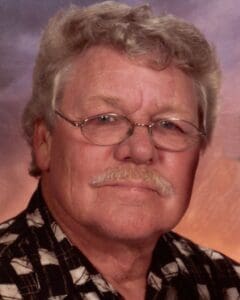by Bethaney Phillips
Last year, Tony Brown completed his second decade as a KSHSAA official. Overseeing everything from basketball to football, to baseball, to volleyball, it’s a gig that gets him eye-level with all types of athletics. From officiating seven games in a single day. running for hours and only getting a few minutes of rest at half-time or between games, tournaments can be grueling work. Someone who is not even playing the game.
“I was a sports junkie growing up,” he said. “But to me, it’s always been about what the game can kind of teach you.”
Most officials say they do it for the kids – and Brown said they are a huge part, but there’s more to it than that.
“I love being around the kids; it’s fun to grow the relationships on the court,” he said. “But I love seeing what they can learn, too.” And while sports is something many are privileged to be able to play, he said. There’s a structure to it. Athletes learn, and through that, someone is needed to enforce the rules.”
Getting Started
While Brown himself played sports in school, it was during college that he began officiating. At Fort Hays, his dorm neighbor had the gig and Brown also got involved through intramural programs. It was there that he met more officials and learned the ropes of making calls and where to draw the line, he said.
Now this winter, he’ll begin his 21st year officiating, focusing solely on high school basketball.
Brown will cover 1-6 A schools, traveling from as far west as Beloit to as far east to Wamego, he said. Though he may cover weekend tournaments in among McPherson, Heston, Hillsboro, or even to Colby, depending on his availability.
There are a few reasons it’s his sport of choice, he said. One is that it works better with his schedule. Owner and Optometrist at Clarity Eye Care in Clay Center and Washington, he said he needs a sport that allows him to work until the end of the day. Additionally, he likes watching the local football team, while also avoiding heavy losses.
“I had such a blast watching Clay Center football,” he said. “But in football, there’s more travel and there were blowout games. That was no fun, I don’t need to go somewhere for a 50-to-nothing game.”
How it Works
As an official, Brown is an independent contractor with KSHSAA. Officially certified, he qualifies annually by taking written tests on the sports he will cover. Meanwhile, the organization pays per game and does not reimburse for mileage. While he said some do complain about the amount, he’s not in it for the income.

“That’s not why I turn down games,” he said of the pay. Instead, citing scheduling conflicts or distance from his home.
When he began, he said the process was more dated; you took whatever was assigned to you. Now, schedules are released and Brown, along with his team, sign up online; he’s part of a three-man crew with James Cole, an Independent Health insurance Advisor out of Clay Center, and another official from Washington.
“Credibility is very important to an official,” he said. Adding that the trio markets themselves together, working as a team they’re comfortable with each other’s calls, cues, and more. “Going about things the right way has always helped. I feel like we’re better on a crew; we can make each other better and can call out those bad habits or bad calls.”
Cole has also been officiating for 20 years, covering both football and basketball.
Though it’s not uncommon for other officials to work independently and get assigned their counterparts at random, he said.
Call Chaos
Part of officiating is dealing with spectators who don’t agree with the projection of the game; that’s just sports, Brown said. Dealing with those reactions is also just a part of the gig.
“We get grief from the spectators,” he said. “And we have to be careful of how we deal with it, need to be politically correct. We could lose credibility.”
And for the most part, it’s not a difficult gig. As a calm personality, Brown said he takes it all in stride.
“As long as the crowd is booing together at the same time, I get it. But when it’s on yelling above everybody at weird times, that’s more difficult to ignore.”
He’s blown his whistle at a crowd member before and has occasionally had to have an audience member removed; other officials have had to eject a coach.
“When you take it seriously and you do a good job, it’s not a problem very often,” he said. “We just try to do the best job that we can. If officials aren’t as good they’re going to catch more grief.”
It’s a problem that not only means dealing with the crowd, but causing confusion for the athletes, he said. When games are called differently, players don’t know who to trust or what they can get away with, Brown said.
He added that it’s not the kids who give them problems; they’re respectful and thank them on the court, aware there is a shortage of working officials.

“We heard multiple times this year from different people after the game, in gas stations or at the school, people came up and said we did a great job and it was fun to watch. So that makes it a little more fun.”
For anyone starting out, Brown said there are classes across the state on becoming an official. However, the learning curve is fairly steep.
“It definitely takes dedication. I was lucky, had a bunch of my best friends going through the same thing with me. We were trying to have fun together, no matter what sport it was,” he said. “We talked a lot about it daily, about the rules, what do you do in this situation and we would grow together. But if you’re getting started and you’re by yourself, people are going to give you not necessarily good feedback; they’re going to give you criticism. But whether you’re young or old you can grow together. Just talk about things and be able to explain and stay consistent. That’s the way to learn what you’re doing.”













